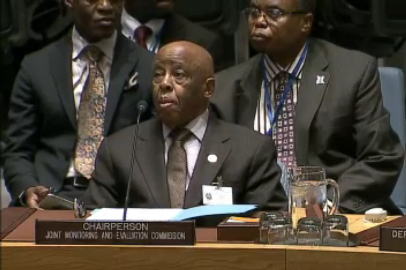S. Sudan peace monitors call for “inclusive” cantonment sites
December 13, 2016 (JUBA) – The Joint Monitoring and Evaluation Commission (JMEC), the body overseeing the implementation of 2015 South Sudan peace agreement called for “inclusive” cantonment sites for the two rival armed forces in the war-torn nation.

“Inclusivity means that all parties to join the cantonment and the disarmament, demobilization, and reintegration (DDR) process peacefully and ensuring genuine representation of the national character in all transformed institutions,” said Njoroge.
“Cantonment of forces in not an easy task. We have many challenges ahead to ensure that cantonment is a success and moves the peace process forward in the coming months. The cantonment will require the combined efforts of the Transitional Government of National Unity, regional and international partners,” he added.
According to the Agreement on the Resolution of Conflict in South Sudan between the government of President Salva Kiir and the armed opposition (SPLM-IO) signed in August 2015, JMCC is responsible for oversight and coordination of the cantonment process, as well as the return to the barracks by pro-government soldiers.
The government initially rejected cantonment camps for the opposition forces in Equatoria and Bahr El Ghazal regions, before reluctantly accepting in September after Riek Machar was controversially replaced after he fled Juba following clashes in July.
During the JMCC meeting, South Sudan Minister of Defense Kuol Manyang Juuk reaffirmed government’s commitment to opening cantonment sites.
“Efforts are being made to reconcile the people of South Sudan. We have the political goodwill. We are doing everything we can to do well in the peace process,” said Juuk.
The armed opposition faction loyal to Machar does not recognize his successor Taban Deng Gai as their legitimate leader. It is thus unclear if troops loyal to the country’s former First Vice-President will assemble in designated areas as expected.
(ST)
